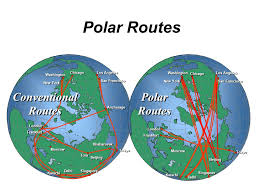When I traveled to India last November I flew a polar route through Dubai. I was lucky enough to have sitting next to me a 29-year-old economist from the UK named Chris. He was going to Abu Dabi for a conference on famine relief and since we had a 16-hour flight, we struck up a conversation that was for me both fascinating and a bit disturbing.
I quickly discovered that Chris was well-informed, well-traveled, and really smart. In no time we were commiserating about political turmoil roiling in both our countries. Chris had more than a passing interest in politics. I was mesmerized by his deep understanding of Britain’s history and particularly its relationship with Europe. He walked around the Brexit debate from all sides, examining arguments of those for leaving the EU and those for remaining. He considered the question from different European perspectives: Turkish, Italian, French and German. It felt like a guided tour of the European Union.
We began to talk about the generational differences surrounding the Brexit decision within the UK. He shared that the average age of members of Parliament was 50, and 70 for the House of Lords, whereas the median age of the population of the UK is 38. When I wondered out loud how that might compare with the American Congress he shot back the average age of the House of Representatives was 58, and 63 for the Senate. The median age of the population of the US is 37. He noted a fascinating historical fact: Most of those who set forth the terms and conditions of the Treaty of Versailles in 1919 (average age 66) never lived to experience the consequences of their decisions — World War II. He said the same will be said of those setting the terms and conditions of Brexit.
Then it was time to sleep and my young friend was soon communing with Morpheus. I could not sleep, however, my mind working to absorb all that I’d heard. It struck me how absurd it was for one generation to so prominently figure in decisions about a future in which they have so little stake. I remembered 40 years earlier when I was equally energized about the future and felt equally hamstrung by old farts who refused to let go of power.
Chris was asking now what I was asking then: How can the emerging generation have a greater voice in addressing the challenges of the planet on which only they will reside?
If I’ve learned anything in three decades of sobriety it is this:
- things never get better,
- there is no change,
- there is no future
without the capacity to let go.
We so easily get attached to our need to feel in control that we hold on to things even when they are hurting us, like our addictions. We sometimes also hold on to power, even when it keeps those behind us from emerging, learning to lead, and contributing their voices.
This is by no means a new thought. Thomas Jefferson made this very same observation in a letter to James Madison who was to succeed him as president:
“I am increasingly persuaded that the earth belongs exclusively to the living and that one generation has no more right to bind another to it’s [sic] laws and judgments than one independent nation has the right to command another.”
As I enter my eighth decade, Jefferson’s words ring in my ears as I resolve to try to share my wisdom without being overbearing, to ask more questions of those who are younger and offer fewer answers, and to practice letting go.
Just a thought…
Pat and Marsha
Copyright © 2019 Patrick J. Moriarty. All Rights Reserved.
Would you like to submit a post to Just A Thought? To learn more, please click here.


